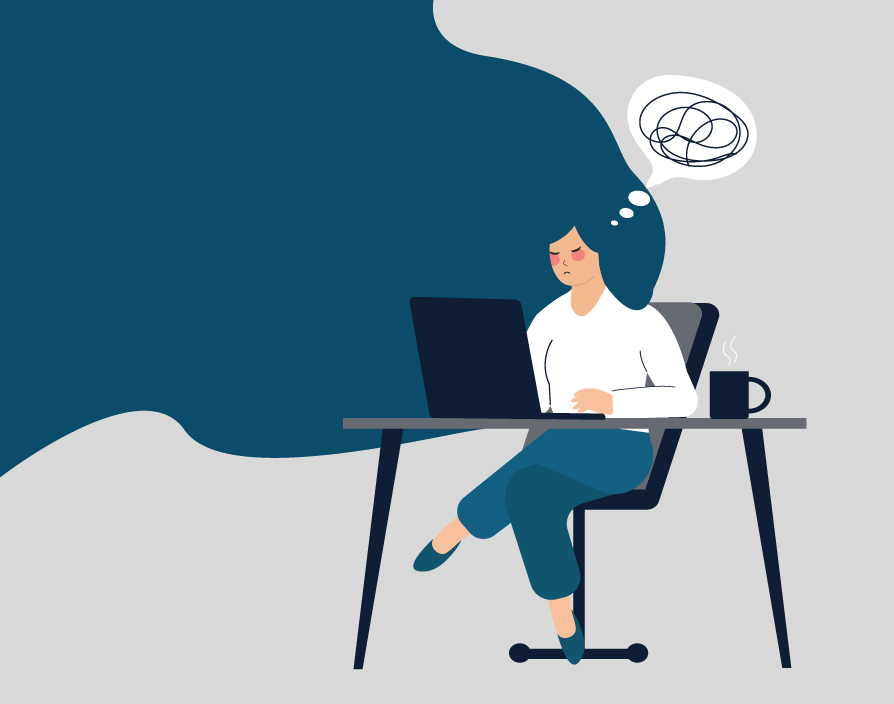Mental Health awareness week is 9th -15th May 2022. With varying social factors such the rise in cost of living, the Ukraine situation and increasing Covid rates, never has been a more critical time for there to be a conversation around mental health awareness and for the stigma of asking for help to be removed. When struggling with mental health, work related concerns can increase stress and further intensify an individual’s anxiety, supporting staff through mental health difficulties will benefit both your staff and your business.
Stress is a recognised medical condition, which if left untreated, can have a serious impact on an individual’s physical and mental wellbeing. Extreme levels of stress can even cause serious episodes of psychotic experiences that result in individuals requiring hospitalisation.
In this article Dr Julian Nesbitt shares some of the policies he, together with the Head of Operations and HR, have implemented to limit stress in their staff’s work-life.
Remote home-working
Whilst Dr Julian Medical Group is a fully remote company, covid forced organisations to ask their employees to work remotely from home. For many, this was a completely new way of working and for a lot of individuals this also meant a sudden removal from their social circle. Employers can help this transition by:
Taking time to assess workstations employees have designed for themselves are suitable and aid good mental health such as desks being in a room with a natural light source.
Encourage and support healthy habits such as taking regular breaks (away from their desks), healthy eating (provide nutritional guides), and exercising regularly which is all crucial for our mental health.
Provide useful tips on how to stay motivated working from home, for example, continue to dress as though you were going into the office and implement a daily routine so as not to work more hours through the evening and weekends which could result in burnout.
Make their employees aware that working from home should not put any extra financial burden on them and the company will pay for any equipment and stationery required to effectively carry out their job.
IT training
Working remotely has meant individuals using systems such as zoom and Microsoft teams to stay connected with their teams. For those individuals who have never used these systems or are not technically proficient, this could be extremely daunting. To prevent any anxiety arising from this, Employers could:
Ensure all staff receive appropriate training on these systems to reduce the stress of having to set up and access these systems
Ensure their IT departments are prepared for a higher volume of queries than may be typical.
Training managers to recognise stress
Employers should also look to train their managers on how to identify potential causes of stress in their teams, particularly within a new remote working environment.
Penny Koulias, Head of Operations and HR explains the policy around turning on camera’s during video calls:
“In all (internal and external) meetings, we encourage all staff to turn their cameras on. This not only promotes team bonding by building engagement and trust, it also helps managers be able to look for and recognise any stress indicators in their staffs emotional, physical, or behavioural conduct (both verbal and non-verbal)”
Employers should take time to train their managers on how to address any concerns they may have regarding any stress signals they may have seen.
Communication
Staff working remotely from home, particularly in forced circumstances and for the first time can lack a sense of belonging and connection to their organisation. It is therefore crucial to help employees to stay virtually connected to their employer.
Regular business communications is always a great way for a company to bring keep its staff engaged; sharing updates and celebrating successes.
Communicating regularly 1:1 with individuals also provides an open channel for support and re-assurance.
Employers should ensure their staff are aware that support is always available to them and how they can approach the company for any support either internally or externally.
They should encourage their staff to seek support when necessary.
Scheduling team social time has great mental health benefits, particularly for individuals who rely on their work colleagues as their social network.
In all circumstances, employers should ensure that everyone is communicated to and treated equally and inclusively.
Recognition
During these unsettling times, Employers should take time to recognise their staff more either verbally or written, particularly in remote working environments where individuals can feel isolated and begin to doubt their contributions and worry about their job security. Studies have shown that a simple ‘Thank you’ can positively improve the recipient’s well-being and produce positive emotional states to help deal with stressful times.
Employee Assistance Programmes (EAPs)
Employers can look to offer free and anonymous support for employees and help alleviate mental health issues, financial stress, and overall wellbeing.
“
Share via:



















































